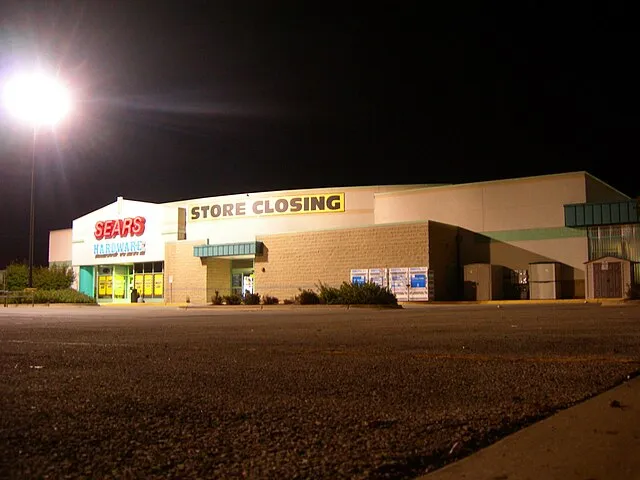The definition of planned obsolescence is, "a policy of producing consumer goods that rapidly become obsolete and so require replacing, achieved by frequent changes in design, termination of the supply of spare parts, and the use of non-durable materials," which is a fairly scary concept, at a glance. Many people who speak out about it will tell you that big businesses and corporations are "out to control you through money" by way of making products that they have INTENTIONALLY designed to break down after a set amount of time or usage. Which is generally supported by the common narrative of, "They don't make things like they used to," that you hear from time to time.
However, what if I were to tell you that this wasn't some big corporate conspiracy and that it's just a mixture of businesses with bad business models and governments that keep them alive because of it? What if I were to also tell you that product qualities and performances are reduced to meet EPA standards and various other regulations set by the government, not only because corporations want you to keep buying their products/services? It may not seem as ominous and spooky as "planned obsolescence", but it's the truth more often than not.

If you want an example out of the automotive industry, as many Anti-Capitalists like to cite, look no further than the Volkswagen fiasco that happened with their diesel engines! Without that engine, Volkswagen vehicles have the worst qualities of both Toyota and BMW vehicles, meaning they look plain and they crumple like a tin can if they hit anything over 25mph. With their diesel engines put into a VW Golf GTI, they managed to turn a dumpy, "eco-friendly" car into a fiesty gremlin on wheels (especially if you got one with a manual gear shifter)!
So why did Volkswagen end up having to bin car designs that would've been more fuel-efficient, turned their cars into speed-demons, and got them more automotive sales than without the engine? That's because some environmental rats noticed that the company put coding in the cars' computers that would allow them to pass EPA regulations on carbon emissions for compact and mid-sized vehicles (thanks, California...). Volkswagen was only trying to improve upon their vehicles and yet the government shut them down because of ridiculous regulations.

"But what about other automotive makers? Why don't they make better vehicles that still meet those standards?" Well, the answer to that, and to other products, lies in how much debt the company has accrued, wage laws, company and union "benefits", as well as where the products are coming from.
With the exception of a few, smart dealership owners, usually most companies end up getting loans out on cars in order to purchase and ship them in for sale for consumers. The incentive there being to get consumers to finance their vehicles so that way they can make more money through interest and missed payment fees. If the consumer bought a vehicle "cash" (meaning without financing and with a check/credit/debit/money transaction), they would actually be selling the vehicle at a loss given their business model of acquiring goods.

The big problem, and loophole in Anti-Capitalist's arguments, is how many people either buy new vehicles with straight cash, haggle down new vehicle prices, or just buy vehicles a few years older for substantially less. The market has made a substantial shift in their automotive purchases, where people are actually FINE with buying older vehicles that they know they can buy parts online for cheap and replace parts as they go. This shift is actually crippling these "corporate overlords" that are supposedly pigeon-holing us into buying anything and everything that they want us to buy.
This is exactly the same with other products and services like washing machines, cleaning services, retail stores (K-Mart and Sears, anyone?), and other manufacturing companies. The difference between "Mega Corp." and other businesses is that government props them up through taxpayer money (via subsidies and bail-outs) and sometimes push legislation that allow for those corporations to keep up their poor business models. This may seem like a big "gotcha" for the planned obsolescence argument, but that's due to a lack in understanding the paradigm between corporations and government.

While people would argue that corporations use politicians as pawns to fiscally govern people, it's really a mutually-parasitic relationship between both entities. Without politicians to lobby with and to support in their campaign runs, what leg does the average "Mega Corp." have to stand on to control the market? Politicians explicitly write laws for corporate tax cuts, arrange certain trade deal agreements, place tariffs/embargoes on certain countries, and put laws into place about where they can buy goods from, what quality the materials their goods are made of have to be, how much they pay their employees, what "benefits" they offer those employees, and so on.
Through those laws being set into place, corporations now have to operate in a sub-par manner. Instead of having factories based in the US, with employees that are paid a decent wage for their work, they now have to outsource their work to foreign countries, buy the cheapest materials they can get away with to off-set expenditures, pay foreign employees as little as possible to make a profit, and end up selling their products back home at a higher price for what it should be for a sub-par product. Hence why the markets get flooded with certain products and services that end up being mediocre at best and puts those corporations in a position of where they either keep spamming those products or they go out of business (which politicians won't let happen).

While that may seem like a win-win for politicians, it actually comes out to a lose-lose, given that people will be angry at them for not providing more jobs to the local/national economy and then still be angry whenever "Mega Corp." goes out of business, leading to what few jobs they had being cut completely. This ultimately hurts their chances for re-election, further pushes them into being in bed with those corporations, and the cycle keeps on spinning round and round until the economy collapses.
Even if companies could make these Platonian products that last a long time, the problem is that they can't do that because of regulations AND the reality of scarcity. For those unfamiliar with the term, it means, "the state of being scarce or in short supply; shortage". In tandem with companies not being able to make the goods that they want (because, unlike what Anti-Capitalists would like to believe, a company's priority is providing competitive goods and the best customer service possible), products will eventually give out over a set period of time anyways.
The case Anti-Capitalists are arguing for is entirely subjective, is meant to inspire further hatred for money and for the free markets, and ignores personal agency in buying goods and services. They claim that because their computer-integrated washing machine doesn't last for 40 years like their grandma's from 1976, that means that the company is swindling them through false advertisement and the deliberate sale of faulty products. Forget that, sometimes, people are idiots and don't know how to use or upkeep their products as they should and IGNORE the idea that maybe a $15 blender is probably made cheaply and will break on you quicker than the $199 one.

People underestimate just how powerful buying power actually is and that's reflected through the planned obsolescence argument. They insinuate that because corporations exist, that politicians are in bed with them, and because politicians write laws that enable corporations to continue operating on a terrible business model that capitalism is the problem. Nevermind that every state-run institution and service is ALWAYS sub-par to their private-sector counterparts (if they're even allowed to exist) or that corporations who do get help from government end up slowly dying out again, anyways.
The solution to legislation and corruption in the free markets is not MORE legislation and corruption, but to let competition take place and let the consumers have more choice in what they buy. There are already laws in place to "punish" corporation in the way that Anti-Capitalists want them to be punished, as well as laws about politicians in their dealings with corporations. None of those laws have worked in practice and it just goes to show that advocacy for more government or government taking over the means of production as some sort of preventative measure will end in the same way.